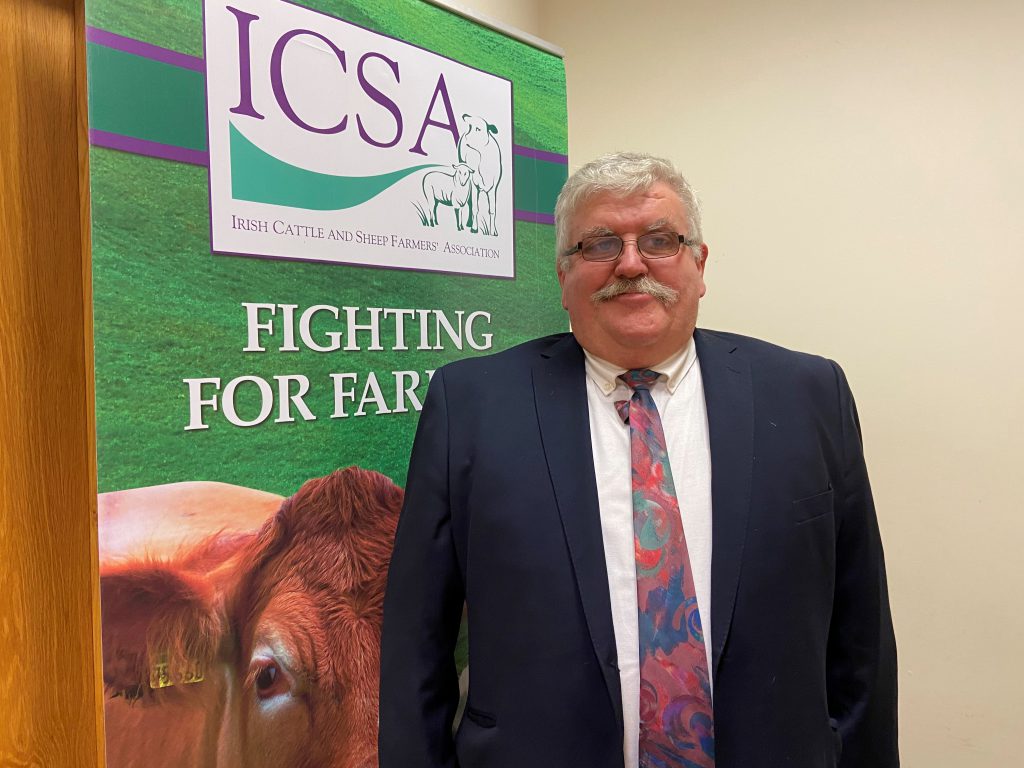The president of the Irish Cattle and Sheep Farmers’ Association (ICSA), Dermot Kelleher has said that Ireland’s national bovine herd has been stable since we joined the EU 50 years ago.
Figures from the Department of Agriculture, Food and the Marine (DAFM) have revealed that the national herd has reduced by almost 570,000 head in the past 20 years.
According to the DAFM’s Animal Identification and Movement System (AIMS) report, on December 31, 2002, there were 7,074,033 cattle in Ireland. As of December 31, 2022, 20 years later, there were 6,504,599 cattle in Ireland.
ICSA
ICSA president Dermot Kelleher said the recent data needs to be seen in the context that cattle numbers in this country have been stable overall since 1973.
“There has been a lot of grossly inaccurate comment about the national herd growing exponentially, especially by those trying to put disproportionate blame on livestock farming in the climate debate.
“Yet as these latest figures again show, our national herd is remarkably stable,” he said.
“In the same 50-year period, world population has almost doubled and they all need to be fed.
“Whether we feed rich, middle class or poor is irrelevant, the fact is that Irish farming is making an important contribution to food security.
“This cannot be taken for granted, although it seems many decision makers in Brussels and Dublin are willfully oblivious to the food challenge,” Kelleher added.

The ICSA president acknowledged that the national suckler herd is falling in numbers and “this is a matter of concern”.
“There is an urgent need to address the low incomes in cattle and sheep systems because we do need balance in our agriculture.
“The disparity in incomes between cattle and sheep versus dairying can no longer be ignored.”
The ICSA had proposed using 10% of Common Agricultural Policy (CAP) funding for targeted coupled payments for suckler and sheep farmers, along with a support for beef producers.
However, this was rejected by Minister for Agriculture, Food and the Marine, Charlie McConalogue and other farm organisations.
“This must be revisited in the mid-term review of the CAP plan for Ireland, and it must be central to all future funding issues.
“For example, it is unacceptable that there is still no acknowledgement from the minister that the sheep sector needs better payments than €12/ewe,” Kelleher said.
